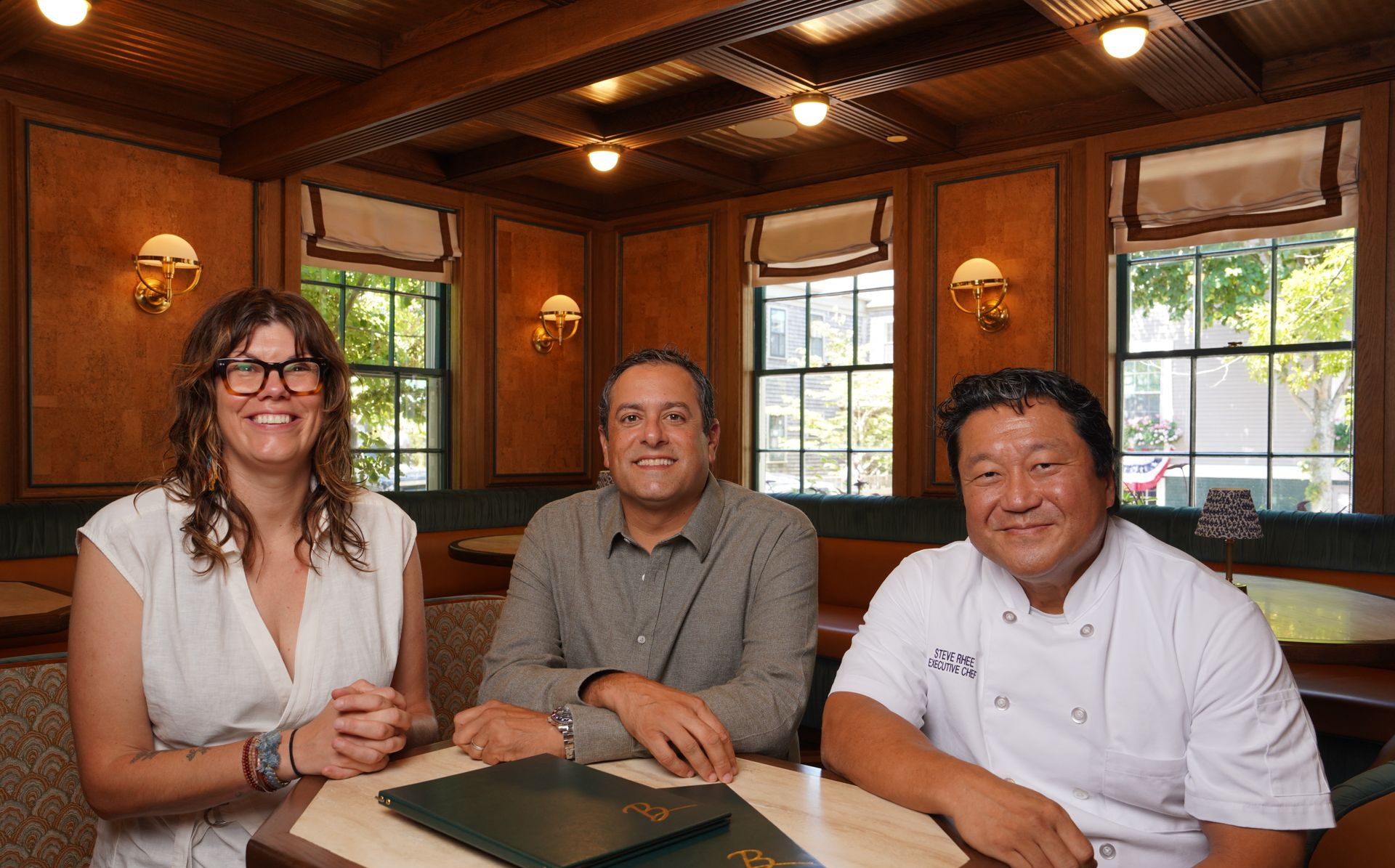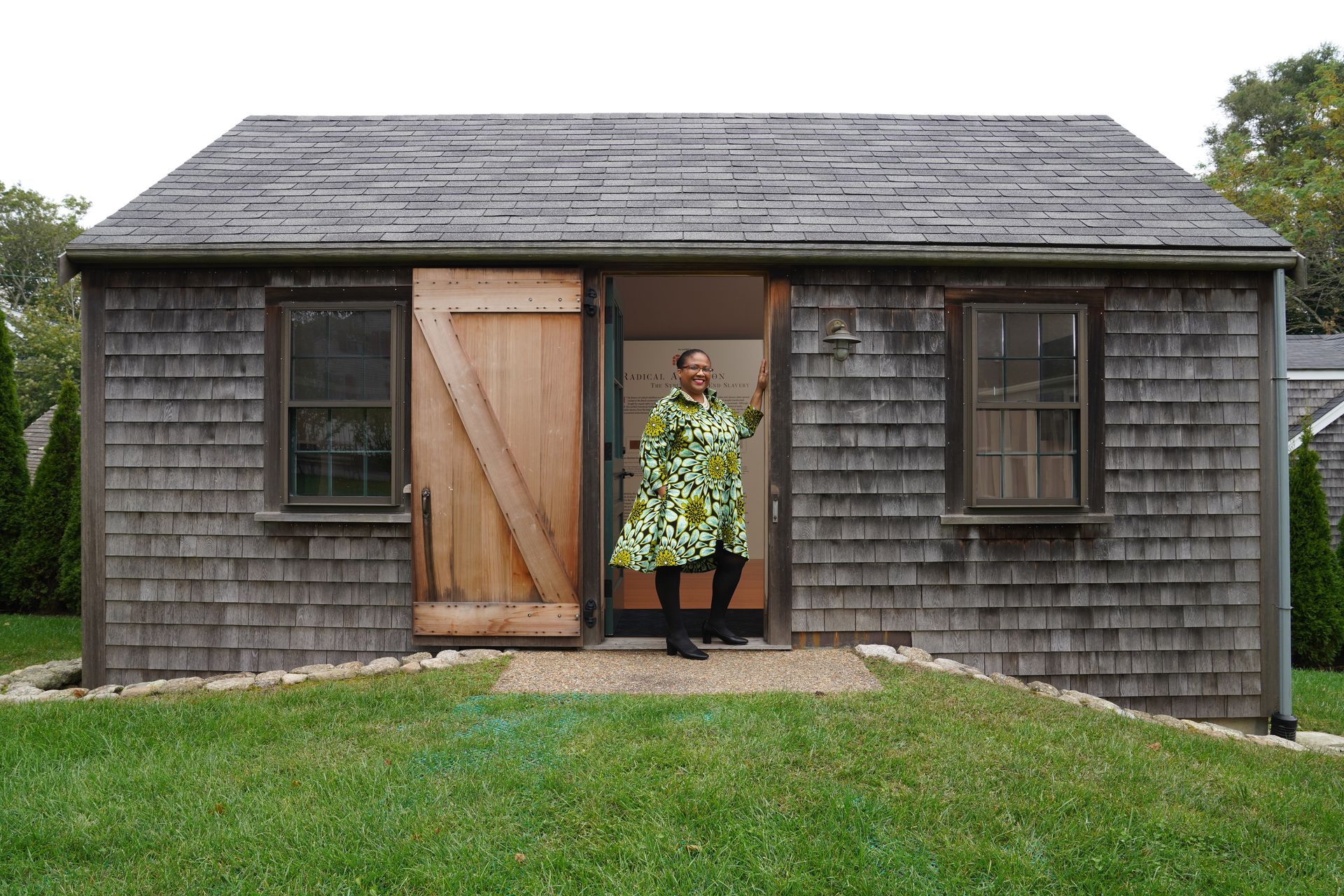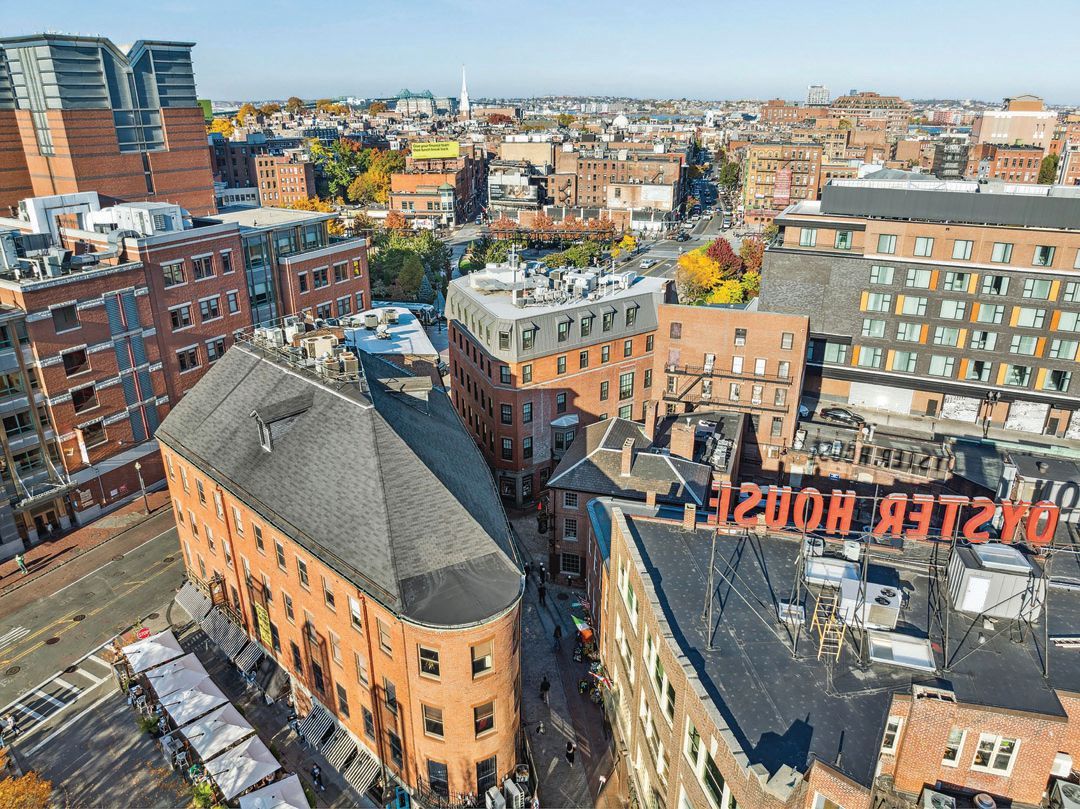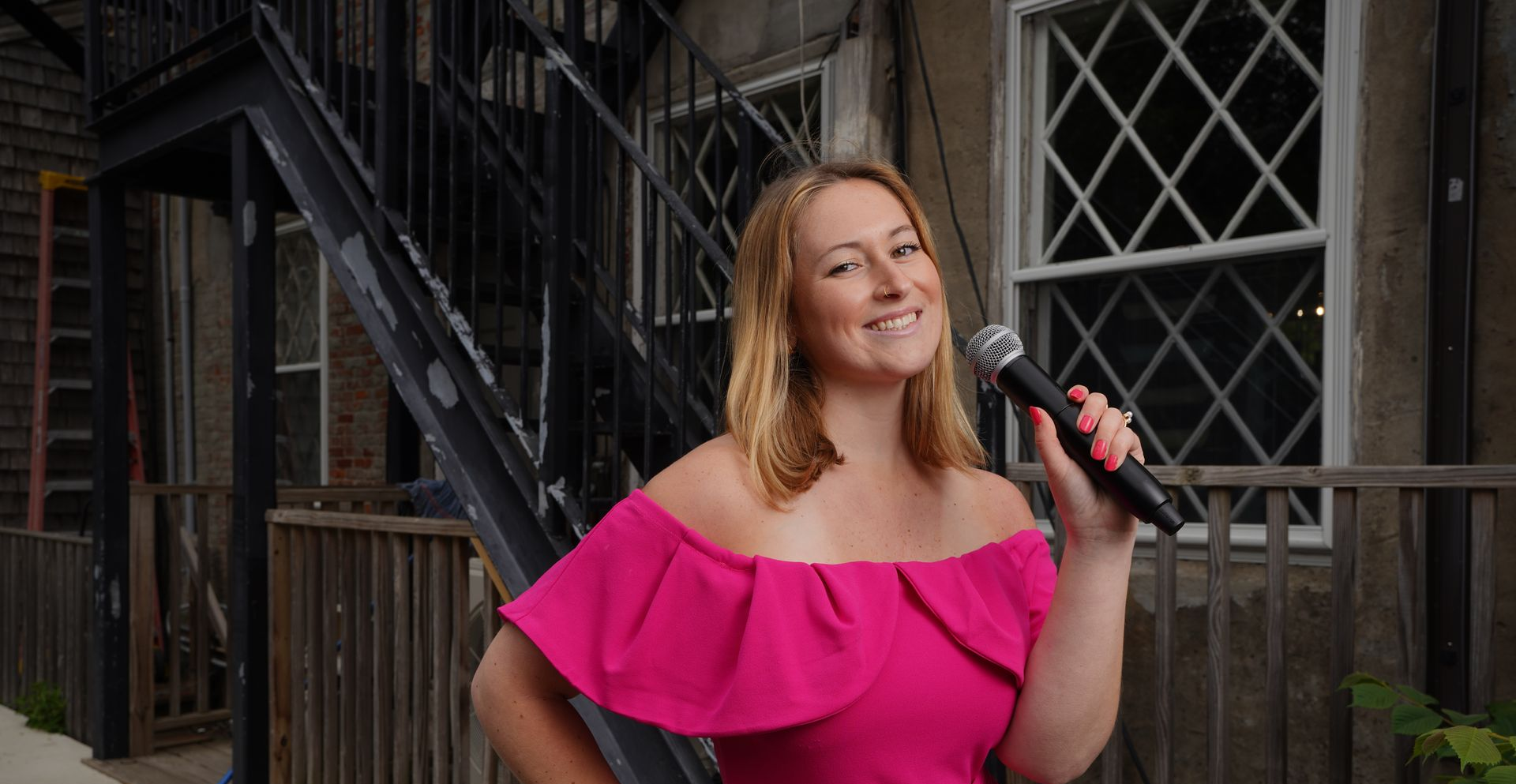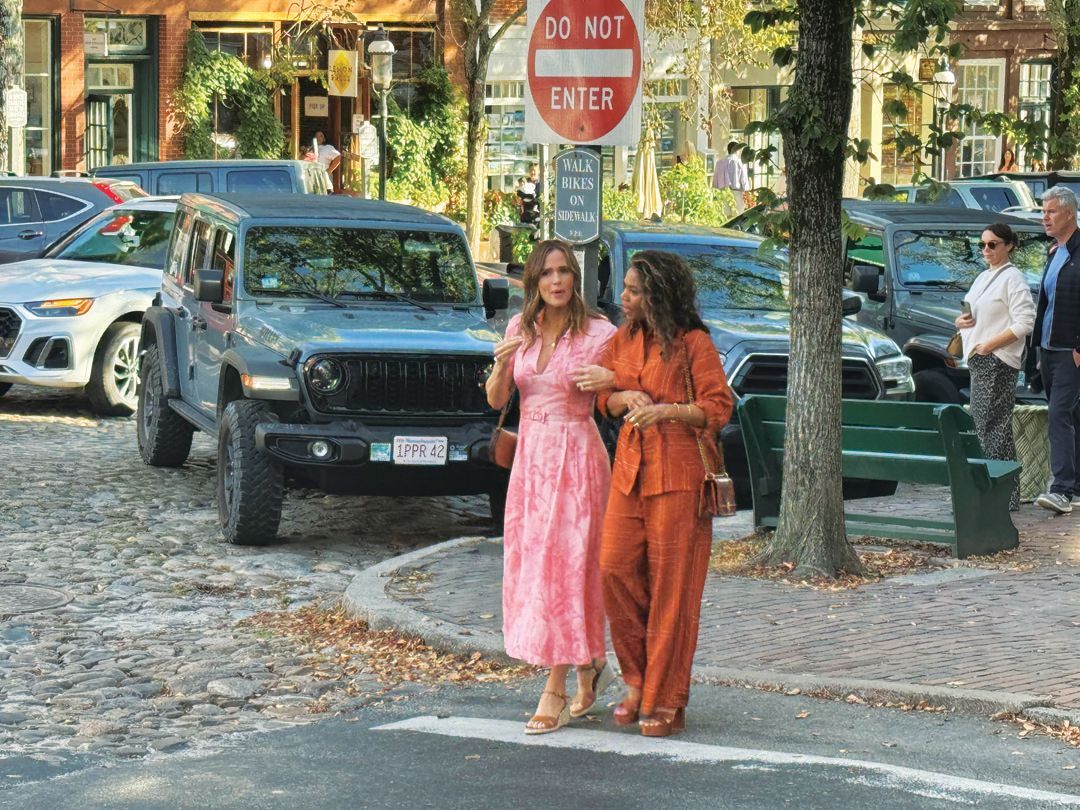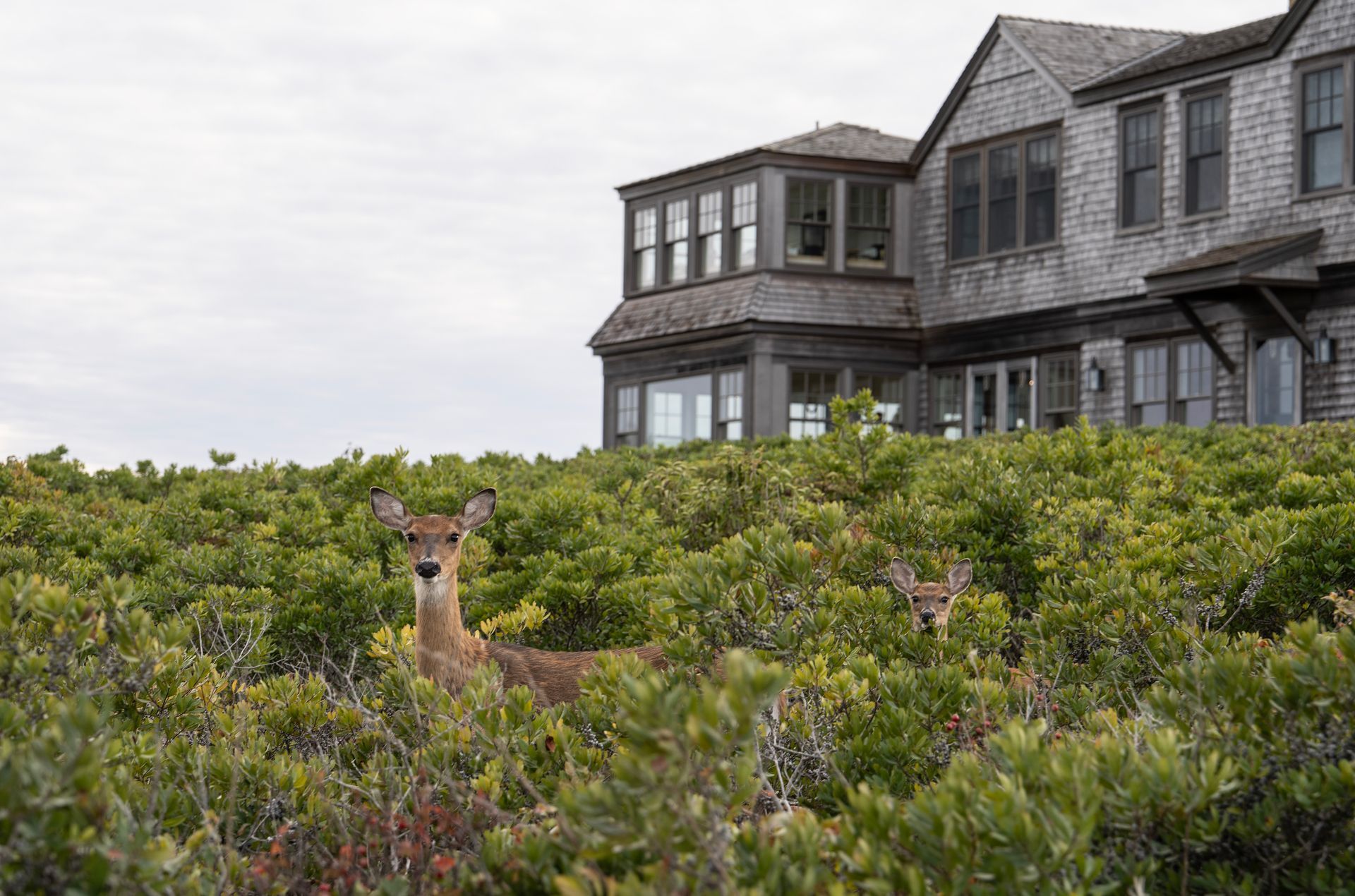Divine Intervention
Nantucket's Person of the Year: Father Max Wolf
Interview by Bruce A. Percelay
Photography by Kit Noble
Father Max Wolf’s journey to priesthood was anything but conventional. Before he became a priest in the Episcopal Church, Wolf held a variety of odd jobs, from a commercial fishing boat in Alaska to waiting tables in San Francisco and New York City, where his guests included Miles Davis, Jimmy Stewart, Elizabeth Taylor and Kurt Vonnegut. Before he administered the body and blood of Christ, he peddled high-end wine to gourmet restaurants. But ultimately, he felt a calling from a higher power.
For nearly a decade, Wolf has not only led St. Paul’s Episcopal Church on Fair Street—he’s also become a leader in the community, supporting a number of charitable causes at a time when Nantucket’s housing and food insecurity crises have reached an all-time high. That work is not exclusive to his parishioners, either. Through the church, Wolf has orchestrated the delivery of more than 1,000 bags of groceries to the Food Pantry, donated over 200 bicycles to summer J1 employees, held weekly dinners at the church, provided laundry services for islanders struggling to pay rent, and launched a reading and toy-lending program for children. For his work for the community,
N Magazine has named Wolf its person of the year.
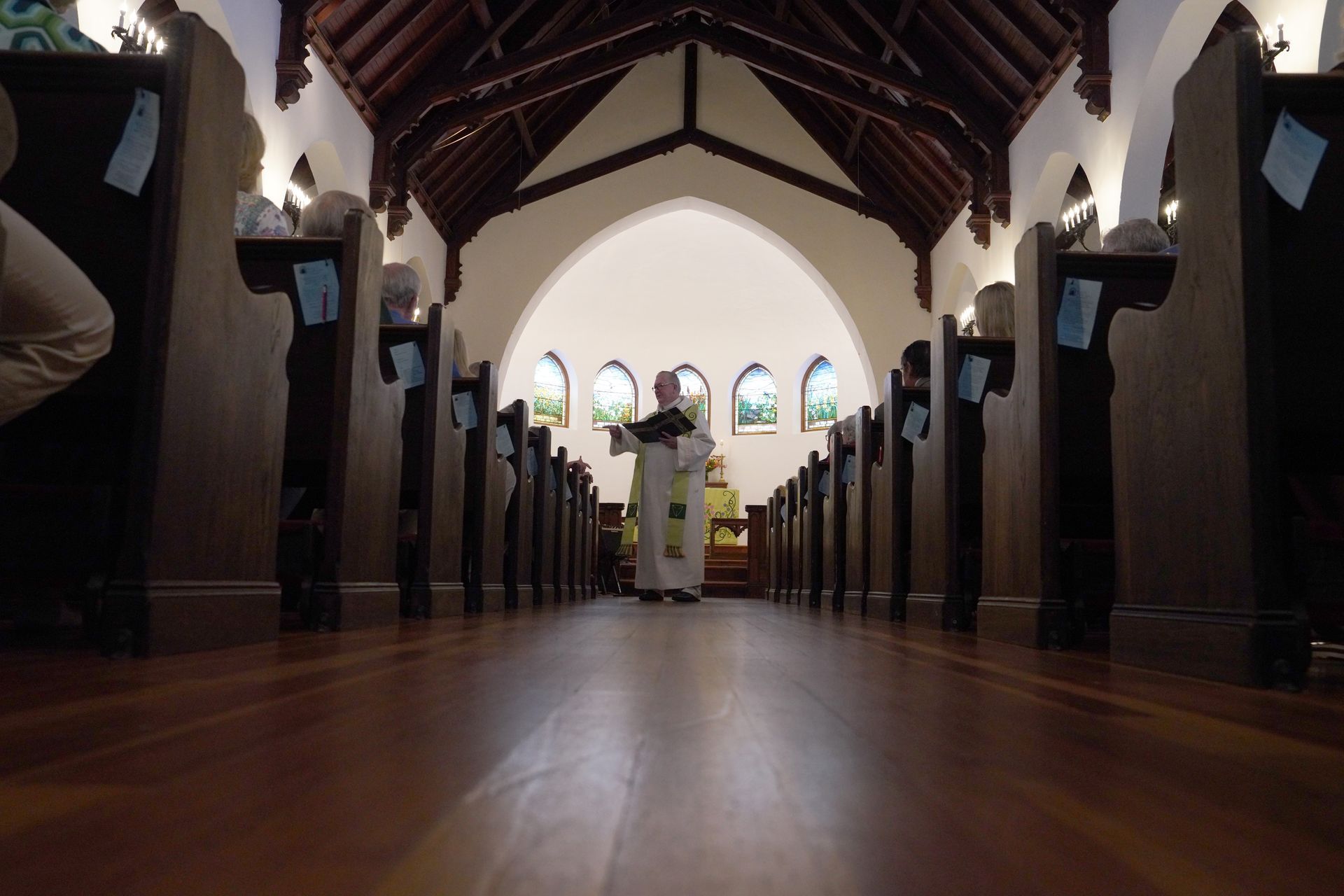
Did you always feel called to the priesthood?
WOLF: No. I grew up in a different Christian denomination and felt called to the priesthood as a boy, but not to the celibate life. The priesthood looked lonely to me, so I ended up working in restaurants. I would see these men coming in, selling wine with the chef and the restaurant owners. I paid attention to wine and started walking the streets of Manhattan. My first sale was the largest sale the company ever had, which was to the Four Seasons Restaurant.
That company moved me to Nantucket, because Don DeMarco was my customer in the Upper East Side and he had a restaurant here. They said, ‘Max, go out to the island for us on Monday and set up appointments for us.’ When I went back to New York, they asked me to move here fora couple of years, and after two years living here year-round, my company moved me to Boston because it’s so seasonal here.
You grew up Catholic. What was your journey like into the Episcopal Church, and why did that church feel right to you?
WOLF: I went to see my priest at Trinity Church in Copley Square. [That church] had a beautiful message, welcoming everyone to the Sacraments, and women were priests too. A lot of things about the [Episcopal Church] resonated with me. After a couple of years there, I went to see the priest and said, ‘I’m doing really well in the wine business, but I feel that maybe I could do something more essential with my efforts.’ [The church] had me volunteer for 10 years at the Women's Lunch Place, where I sat on the board of directors. Then I went to see an executive coach who worked with successful lawyers and executives, which led me to visit my home diocese in Rhode Island. I brought my wife with me and I felt called.
It was something I had to do, to pursue the priesthood. I was compelled. The Bishop asked me a couple questions, and asked my wife what she thought about being married to a priest? She said she would be honored if her husband served God in that way. My Bishop said, ‘Max, be in the world just like you are a wine salesman, not trying to talk anybody into anything, not proselytizing, but representing the Church like you do your vineyards and your company, walking the streets, making connections.' I’m an extrovert, so it was easy for me to do that. I’m curious about people. When I meet someone, I want to know about them.
Your work clearly resonates beyond the walls of the church. What motivates your community outreach efforts?
WOLF: We had something called Laundry Love in place, where we hand out laundry cards for Holdgate’s Laundry. We worked with A Safe Place, The Warming Place and the Saltmarsh Senior Center—and then Covid hit. The Community Foundation approached all of the churches to say they had chefs and caterers that were going to [lose their jobs], and were looking for churches to deliver meals to people quarantining. We were the only church that responded to that call, and we first worked with chefs and caterers. We delivered 80 to 100 meals every Wednesday to people who were isolated. From Laundry Love, we met people from the Community School who would come in and translate for us. They said not all of our children can afford snacks, and we feel bad that they’re left out and that it’s obvious that they're in financial need. We thought if we supplied snacks for all the children, then there would be no differentiation. We’ve been doing that for several years now. The parish has made a significant commitment. We spend about 15% of our $900,000 budget in the wider community. [Many parishes] have so much trouble meeting their own budgets that they only spend a fraction of that on the wider community.
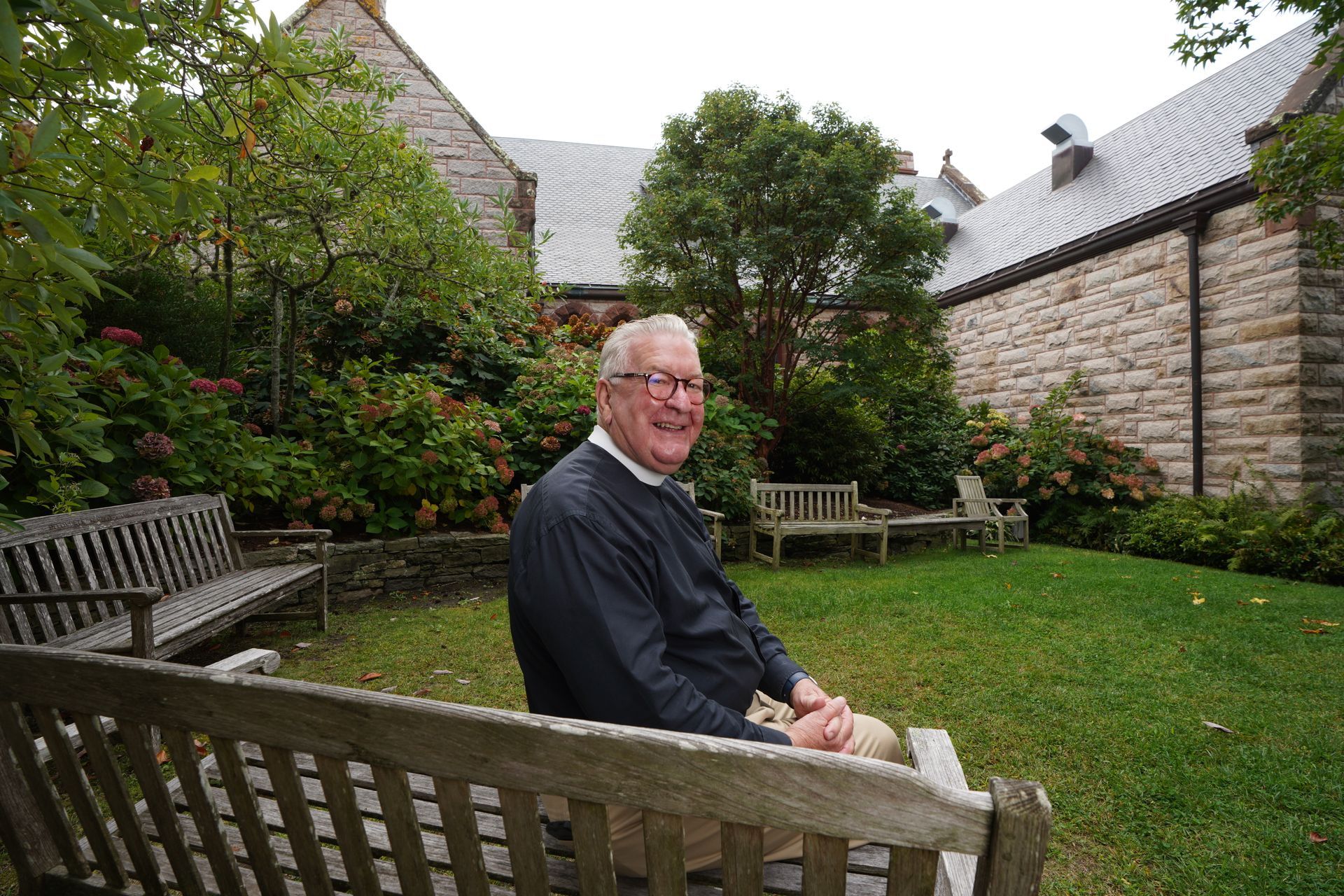
You have chosen to throw yourself into the community—is that something that’s unique to you or is that part of a priest’s role at an Episcopal Church?
WOLF: It's both. My Bishop in Rhode Island said that most clergy are hiding in their studies and they’re not out in the world. I think that’s true of a lot of Clergy. I know with one of my predecessors, they said they could never find him, but he preached brilliant sermons on Sunday, so during the week he was preparing his sermons. I prepare my sermons by being out in the world. When I interact in the community, that’s what I talk about on Sunday. We read from Hebrew scripture and the Gospel and the epistles, and I try to relate what’s happening in our community to that. There are others that do that, and my heroes as a child were people that were trying to meet those needs. I think that’s from my parents, and that was the model I had.
From your exposure to Nantucket and the needs of the island, have you noticed an increase in that need, and does it extend beyond people you would normally expect?
WOLF: Yes. I met someone a few years ago that worked for the town and she told me that she spent 70% of her income on rent. Most of us would spend 30% of our income on housing. That was a professional person on the island. I know other people at the hospital are in need. The cost of housing affects everything on the island when people have to make such a commitment just to house themselves.
On a higher level, are you able to attract young people to the Church today? Do young people still embrace religion?
WOLF: Our parish is growing, and incrementally in the offseason. We have a lot of young retirees in their late 50s and early 60s, and we have a lot more children in the summer than we do in the school year because we have so many parishioners from Texas and from the South where it’s natural for them to bring their children to church and to be churchgoers themselves. But I think it’s a challenge for most of our churches. People have said to me that if their children want to see their friends, it’s at the Boys & Girls Club on Sunday morning playing soccer, not at church. That’s what we’re up against. Churches all over the world say our children are the future of the church, but we need children in the present, because we need their perspective and their energy. I always tell our people that first we pray for our children and their families, and then we ask not how we can recruit them, but how we can serve them. Most religions across the board are struggling with [declining numbers]. I’ve had Rabbis tell me, 'We’re not able to pass on this ancient tradition to the next generations.’ That’s the challenge.
How has the Interfaith Council come together on the issue of food insecurity on Nantucket?
WOLF: Over 30 years ago, the town asked the Interfaith Council to take on the Food Pantry. Rather than having a town staff vetting what was happening, the Interfaith Council as a nonprofit had a staff that could feed people. It started at the basement of St. Paul’s on Fair Street, and when it outgrew that space, it moved to the Transportation Center. We’ve taken on the role of getting the word out that there are sources of food here. We’ve also been cooking meals at the commercial kitchen at St. Paul’s. We’re renovating our basement now to bring back the free community dinners we’ve had for years. The Interfaith Council quickly took on this role of feeding and caring, which is natural for us indifferent faiths.
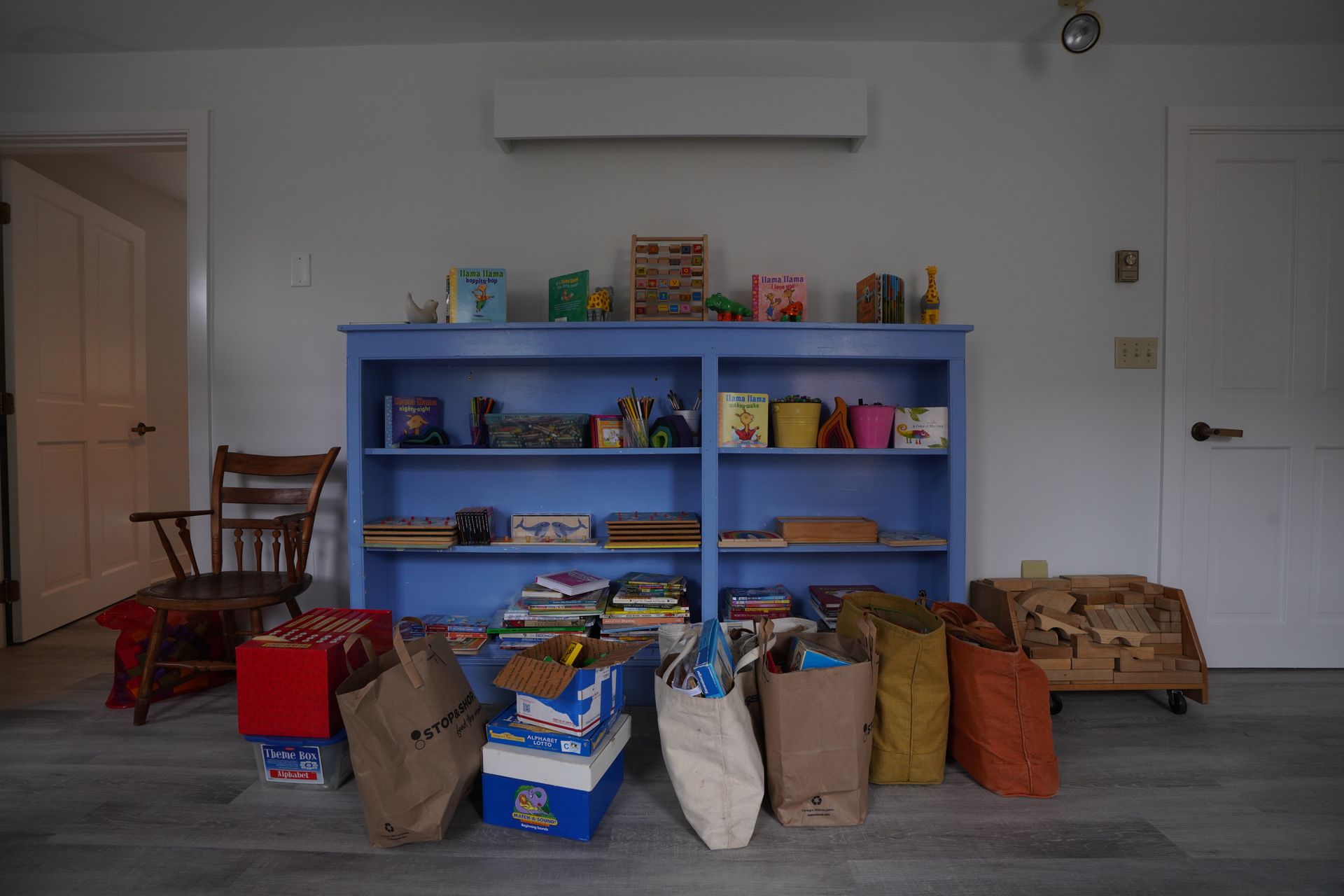
Nationwide, we have not seen the kind of partisan division we have now since the Civil War. Do you think the Church as an institution can help cure the great divide? What is the prescription to keep the temperature down and help people find common ground?
WOLF: So much of the division is based on fear, and a lot of our fear is based on the fear of death. Sadly, some of our religious efforts can also add to division. In my church, we have people of diverse cultural and economic backgrounds, and I always cherish insights from people who think and vote differently. We don’t try to change each other’s minds. I’ve experienced in the Episcopal Church when a congregation is open-minded and not one-sided politically that we have so much more discourse and respect for each other. We vow in the Episcopal covenant to respect the dignity of every human being, not just people who vote like us, come from the same economic class as us or look like us. That’s how we strive to live our lives. An open-minded religious practice is a great cure for the division. After 9/11, that tragedy briefly at least brought us together. I was in Delaware then and had two services the week of 9/11, and the place was packed, standing room only. People were turning to a higher power in that kind of crisis. I don’t wish another crisis on us, but we have so many challenges in the world now and I trust that those challenges will unify us, not further divide us.
Nantucket has problems like the rest of the country, but it always seems to find a way. What lessons do you think Nantucket can impart on the rest of the country on how to deal with social and economic challenges?
WOLF: Those of us that live here experience Nantucket as a close-knit, compassionate community. We look around and care about the needs of others, and that can be translated on a larger scale to large cities even. When I moved here, people said Nantucket was going to be so uniform. It’s not. Our children come from 17 different countries, and our children get along with each other. With our Ready Set Read program, we see children from so many different languages and cultures being friends with each other. That is what’s going to break down these barriers. If cities and towns around the country can embrace that diversity—which is the cornerstone of our nation—that gives me great hope to overcome any political division.

